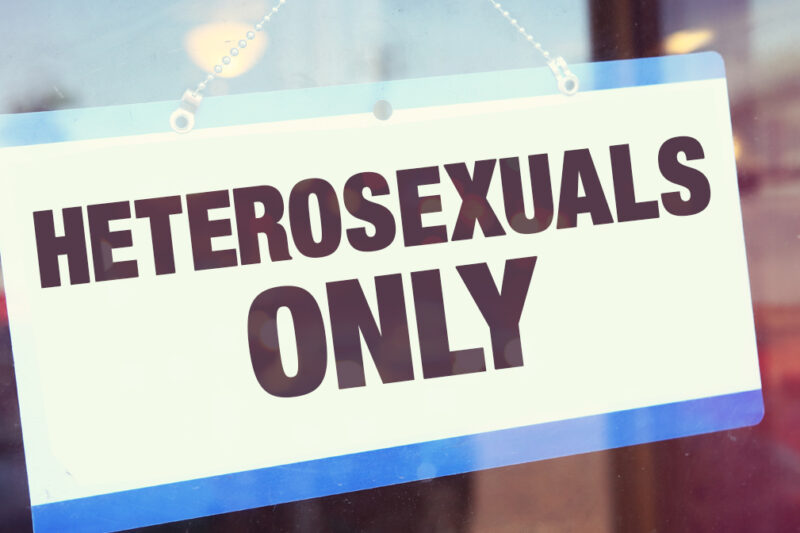
Let me get straight to the point – David Brooks’ column this week encouraging gay and transgender people to simply accept discrimination for as long as it takes for society to come around was more than misguided. It undercuts core American values of fairness and equality and advances the idea that’s it is acceptable to treat some people like second-class citizens because of who they are.
If David Brooks really thinks it’s smart for gay and transgender people to accept discrimination until “gentle persuasion” convinces people that it’s not, I have to ask: Would he have been so bold to make such proclamations in other moments of history when religion was invoked to justify various forms of discrimination?
For instance, something that seems unfathomable to us today but occurred not too long ago: Would he have argued that the barbeque franchise owner who believed mixing races violated his understanding of the Bible should have been allowed to tell African-Americans they weren’t welcome to a seat?
Or that the school run by folks who believed as a matter of faith that the role of men is to be the head of households should be allowed to pay women less money?
Or to use examples from the moment: That schools should be able to fire women teachers for using IVF or hospital staff should be able to fail to tell women miscarrying that ending the pregnancy is the safest medical option?
Or what about a school counselor who doesn’t agree with the “homosexual lifestyle”? Should she be allowed to turn away a gay or transgender youth considering suicide as long as she does it with “respectful politeness”?
In these cases, should the law say it’s okay to deny services, employment, or information – and really fair treatment – until society comes around?
Because whether actively or through ignorance, that is certainly what he has argued.
Undergirding Brooks’ argument is a dangerous concept: That the only possible harm in these scenarios is to religious belief, not to those turned away. That’s simply not true. The sit-in at the Woolworth’s counter wasn’t about wanting a hamburger. It was about fairness and equality.
We’ve made a decision as a country that religious freedom matters. But so does the dignity of others.
Brooks has twisted the idea of religious freedom. Based on his argument, what would stop a business from hanging up a big, flashing sign that says they don’t serve gay people? Brooks’ argument asserts that gay and transgender people should allow that because “religious tolerance” and “[d]eep politeness means we make accommodations” for those who aren’t ready to stop discriminating.
One has to ask, do we really want to value “deep politeness” over equality?
Brooks is right about one thing – religious freedom is a deeply important value that’s woven into the fabric of this country. And it must be protected. But what Brooks, and many others who would use religion to justify discrimination and harm, fails to recognize is that religious freedom gives us all a right to our beliefs. But that right, like all others, has limits. And those limits stop when acting on our belief hurts someone else.
Religious liberty couldn’t be used in the ’60s to turn away people of color. And we shouldn’t tolerate its use today to let businesses turn away lesbian and gay couples seeking to celebrate a relationship or to allow religiously associated nonprofits or businesses to treat women like they’re less than men by denying contraceptive coverage, equal pay, or health care coverage.
To put it simply, the promise of equality is not real or robust if it has exceptions. There’s nothing polite about having the door slammed in our face because of who you are.
Stay informed
Sign up to be the first to hear about how to take action.
By completing this form, I agree to receive occasional emails per the terms of the ACLU's privacy statement.
By completing this form, I agree to receive occasional emails per the terms of the ACLU's privacy statement.

